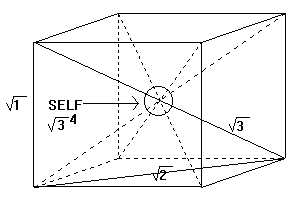Mr Lewis on Love
I have found two quotes that moved me, or that I thought worth quoting. I might listen to the lectures again and post my notes, but for now his thoughts will have to suffice... ;)
Every listener who has had a good parent or wife or husband may be sure that at times he is the recipient of Agape. Not because he is loveable, but because love itself is in the other party. This we must learn: first to believe, then to endure, and then to delight in. And without guessing about it either. Such I conceive is the world of Agape, a world of unbounded giving and unashamed receiving. Where all blessed creatures need, and know that they need nothing but God, and are therefore set free to love one another disinterestedly. And so your love shall be like His, born neither of your need nor of my deserving, but of plain bounty. I think those are drawing near to Heaven who in this life find that they need men less and love men more and delight more in being loved than in being needed.
He quotes Agustine:
"All creatures are temporary...to give one heart to a created being is therefore to court disaster. If love is to mean in the long run to mean in the long run happiness not misery, it must be love for the only beloved that does not pass away."Now of course this is very good sense... Of all arguments against excessive love for a fellow creature, none make so strong a natural appeal to me as “Be careful, this may mean suffering “ but when I respond to this natural appeal I feel myself to be a thousand miles away from the spirit of Christianity. ...And who could conceivably begin to love God on the grounds that he is a “safer investment”?...One has to be outside the world of love, of all loves, before one thus calculates. Such a view does not raise us above the natural affections, it sinks us below them. Eros himself, lawless and rebellious, when he prefers the beloved to happiness, is nearer love itself than this... For our master is one who shed tears at the grave of Lazarus; who mourned over the approaching ruin of his earthly country... And even if it were true that precautions against heart break were our highest wisdom, even if it were possible for that reason to choose the love of God, would that choice be a precaution? That God offers us security I well may believe, but not security from sorrow. His love too may break the heart. ..For Christ himself that road leads to “My God why hast thou forsaken me?” To love is to be vulnerable.
Love anything and your heart will certainly be rung, and possibly be broken. If you want to make sure of keeping it in tact you must give it to no one and nothing, not even an animal. You must carefully wrap it round with hobbies, and little luxuries and routines, and avoidance's of entanglement. And then lock it up in the casket or coffin of your own selfishness. And this means that the alternative to tragedy, or at least to the threat of tragedy, is damnation. For in that casket, safe, still, and unventilated in the darkness, it will go dead. Not broken but finally unbreakable: resistant to all good and joy










